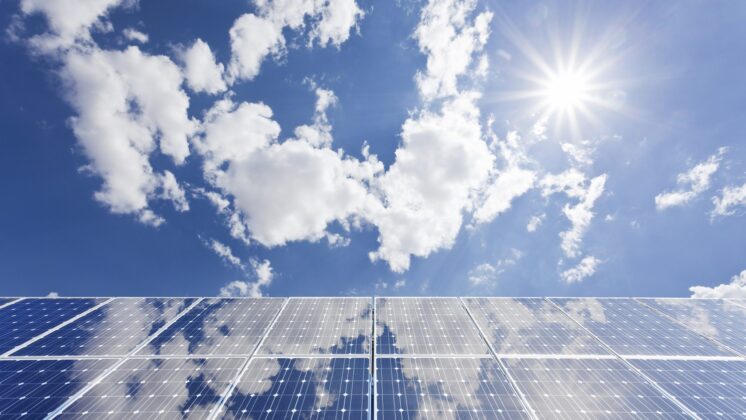Mexico: land of rich culture, delicious food, and lots and lots of sun.
The last of these positions the country among the world’s top solar power producers. The World Bank reported that Mexico needs just 0.01% of its land area to power its needs. And given that solar energy is a globally booming industry (and one that has reasons to be optimistic post-COVID-19), most savvy entrepreneurs will smell the ripe opportunity.
Diego Viesca is one such future business leader. With his partners, he leads SkySense, a solar panel business providing commercial and industrial projects ranging from 50KW to 700KW. These come to a total installation output of about 10MW per year. For context, that’s the US Energy Information Administration determined that the average American home in 2019 used just over 10,399KW hours per year.
We spoke to Viesca to find out how he ended up in this rapidly growing industry and where the future is headed.
Next Article
From MBA to Sustainable Startup: The Story of EcoNest
What’s special about Mexico’s solar energy potential?
According to the World Bank, Mexico is among the 70 countries with ideal conditions to generate photovoltaic solar energy. Its geographical and spatial location enable us to take advantage of this clean and inexhaustible energy.
World Energy Trade has also pointed out that the average daily energy production of Mexico has the capacity to exceed 4.5KW hours per kilowatt of installed capacity. Basically, that means Mexico has the right geography to get enough sun to for 4.5 hours of production daily, which is much more than other places. People often believe that as soon as the sun comes out, your system is at full capacity, but you need to think about how many hours of productive sun you actually get per day. Countries such as Mexico have high potential to generate solar energy, as well as low seasonality in photovoltaic solar production. We can have constant production throughout the year.
With so much potential, what’s the competition like in Mexico’s solar industry? How do you differentiate SkySense?
In Mexico, solar competition is fierce, and the potential market for distributed generation is on the rise. There are many companies exploring this industry, though very few have the size to really compete. Most of them are only engineering, procurement, and construction (EPC) companies. Since we finance and build whole systems, that allows us to gain many clients that some EPCs can’t cater to.
There are also economies of scale in our favor. Due to our size, we can offer better prices.
Our differentiation is that we basically focus on good service to our clients and provide excellent financing. We also guaranttee a certain amount of generation, which gives our clients peace of mind and satisfaction regarding the performance risk of their system. If we do not achieve the goal, we reimburse them for the unreached amount.
In 2021, SkySense plans to double its number of solar roof assemblies in the commercial and industrial sectors. Our industry is growing at an amazing pace, creating many opportunities for investment. People have much more access to these products now than they did a decade ago, and costs have decreased a lot, too. Solar energy really is helping build a better future.
Did you always envision yourself working in the energy industry?
Since I was very young, I always had great admiration for lawyers, especially my grandfather. Therefore, inevitably, I ended up studying law. But after two years in a criminal law internship during my bachelor’s (in Mexico, you start working as an intern in the first year of college), I realized the Mexican justice system is very corrupt. So I just finished my degree in order to have one and ventured into finance.
From there, I started a leasing company with two friends. And by chance, we met an entrepreneur from the solar industry who was looking for someone who could provide financial advising for his clients.
After a while working with him, we realized that financing and solar systems went hand in hand. It was necessary (and fundamental) to develop a solar product that could finance itself through the savings it generated. That was something most industry leaders were doing at the time. We knew we’d need to do the same to achieve the size, economy of scale, and funding to make our product work.
We all decided to embark on this new path and explore the solar industry—which we ended up falling in love with.
At what point did you decide to pursue an MBA?
It all started with a medical diagnosis. In mid-2018, a doctor told my wife and I that we had just a 3% chance of having children. Therefore, we decided to start a new adventure—one focused on ourselves. The easiest and most sound way to do that was getting a master’s degree.
We also wanted a totally different place than we were used to. I had always been an admirer of Japan—its food and culture. My wife and I had both had the opportunity to travel to Japan in 2015, so it didn’t sound so hard. Of course, I didn’t realize then how much of a challenge the time zone would be for my work at SkySense!
Once we chose the place, I started doing some university research and immediately bumped into GLOBIS. I fell in love with its philosophy, how they push you to pursue your dreams and kokorozashi. So I applied, and fortunately, I was accepted.
Then, one month before our flight to Tokyo, my wife and I found out we were pregnant. It was almost as if destiny was playing a trick on us! (Or really, giving us a gift.)
GLOBIS and Japan changed my life 180 degrees. The amazing staff and professors made me realize that I could become a better leader and businessman. I am more than grateful for all I learned from everyone in my short adventure with them.

How about successes? What’s your proudest accomplishment so far?
My greatest achievement has been learning how to balance my professional and personal life.
It is important to create a clear distinction between the two. A satisfying personal life is how you generate personal satisfaction and achieve happiness—and that results in your professional fuel.
It’s something I try to transmit to everyone at SkySense. If your employees do not dedicate the necessary time to their private lives, it will directly affect their professional lives. In the end, this will have consequences for the company’s performance and productivity.
What’s your advice to entrepreneurs, especially those setting out in the solar or green energy industry?
As a young entrepreneur, you face many difficult situations, especially when people see you as an inexperienced businessperson. It’s extremely easy to get discouraged when something goes wrong, or when you’re not growing as fast as you’d like. Self-doubt creeps in, and you feel like giving up.
Being able to overcome self-doubt is key for entrepreneurs. Having someone close who you can rely on, someone who shares your goals and dreams, will help a lot. It doesnt matter if it’s somone in your personal or business life. It should be someone you can talk to at all times, and someone you are willing to listen to.
For the solar or green industries especially, entrepreneurs must be in constant drift. You have to be aware of the innovations and changes of the technology around you. After all, it’s an industry on the rise.







